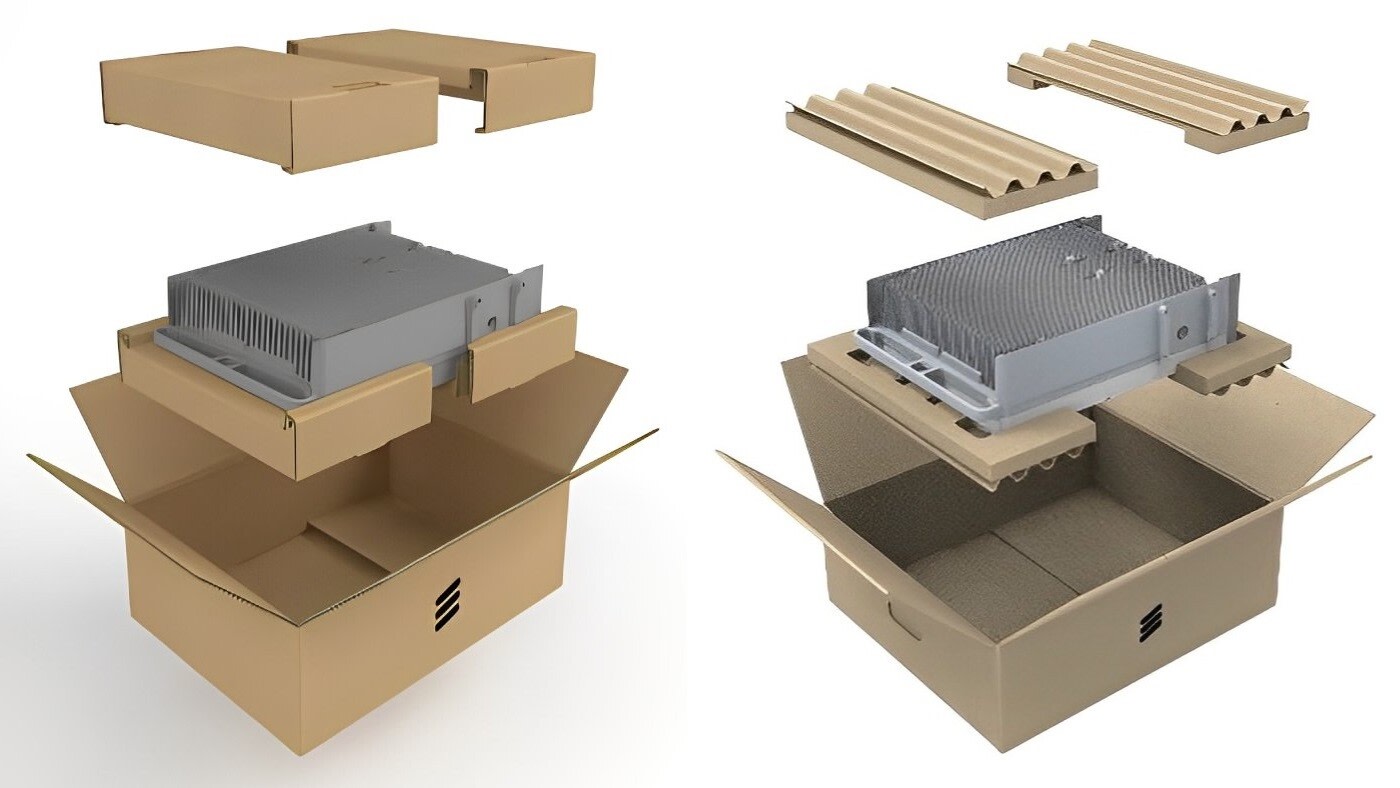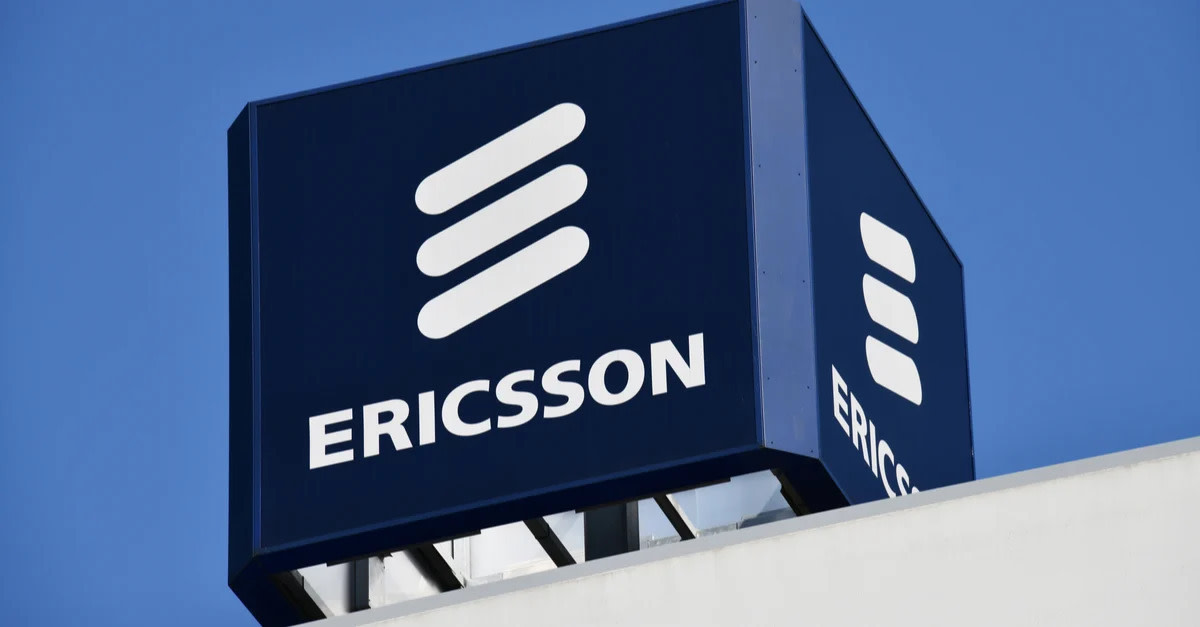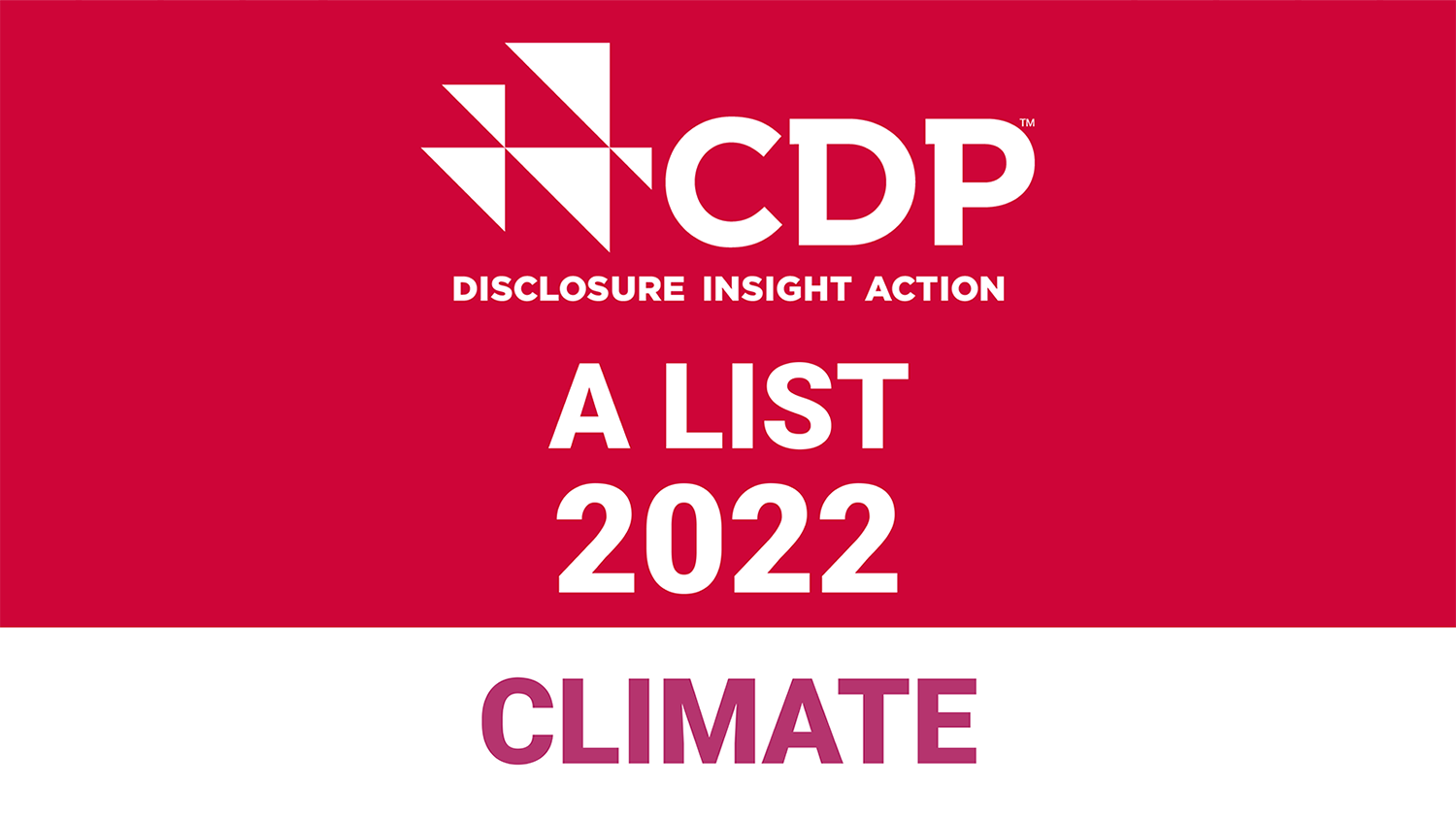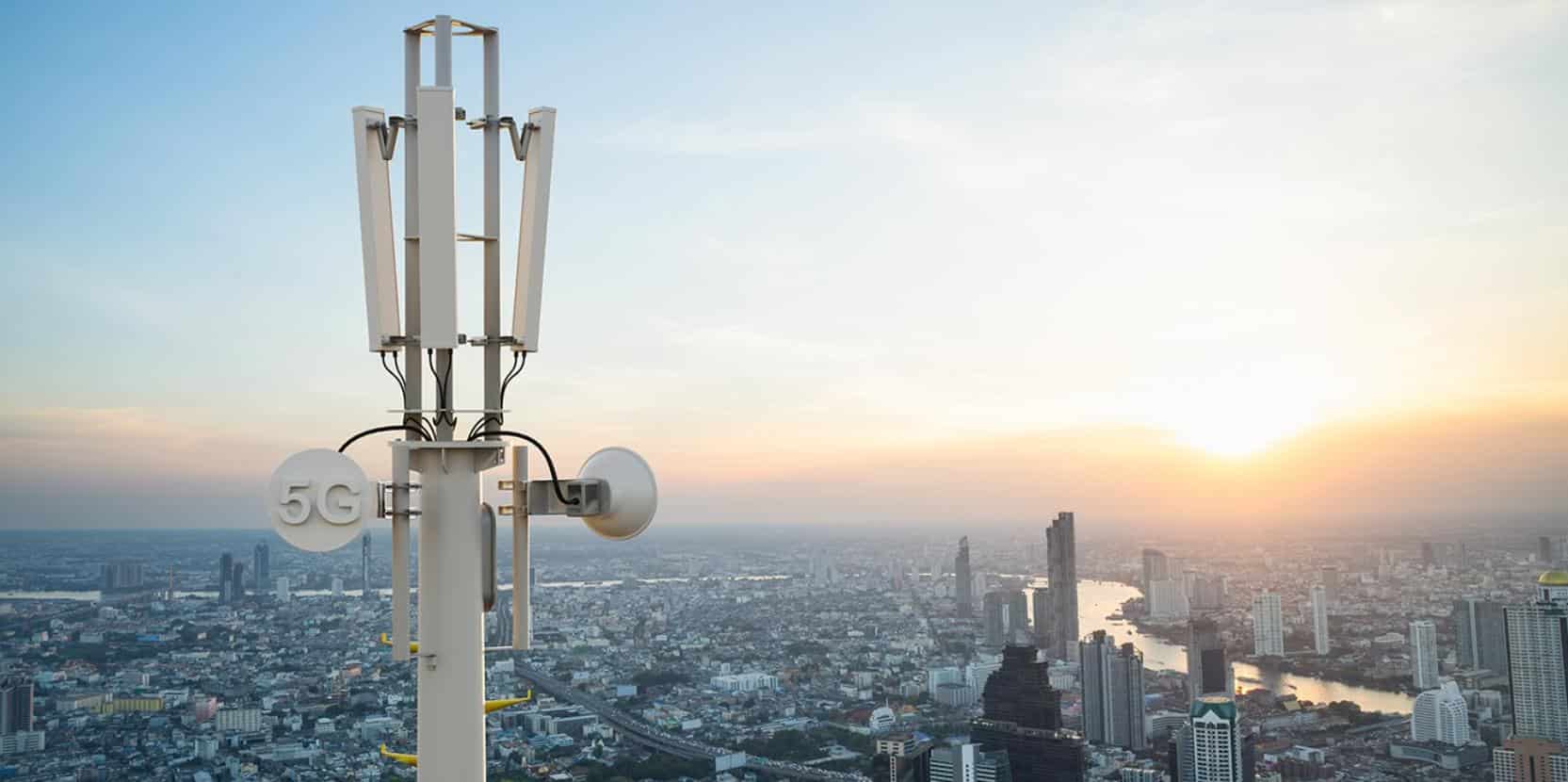Ericsson's Eco-Friendly Supply Chain
Ericsson

In a groundbreaking move, Ericsson has unveiled an innovative sustainable packaging concept for shipping its Remote Radio products.
Departing from conventional oil-based plastics, the company's design team in Stockholm has ingeniously engineered packaging inserts using wood fibre materials.
The primary aim of this visionary sustainable packaging endeavour is to significantly reduce the environmental footprint associated with Ericsson's packaging processes. This remarkable shift not only enhances production, logistics, and disposal efficiency but also takes a resolute stand against contributing to the pervasive issue of ocean plastic pollution.
Featured Article: The Future of Sustainable Packaging: Embracing Eco-Friendly Solutions
The newly crafted inserts, boasting complete recyclability, usher in a transformative shift by slashing the packaging's plastic content from 20 per cent to an astonishing less-than-one per cent threshold. Adding to the triumph, a pioneering anti-abrasion coating is applied to the wood fibre material, effectively negating the necessity for the customary plastic protective covering for product surfaces. Minimal plastic usage remains in the form of tape employed to seal the outer package.
The challenge of designing plastic-free packaging for substantial electronic items, often weighing between 24-36 kilograms, demanded a truly inventive approach. By collaborating closely with Nefab and DS Smith, Ericsson has seamlessly incorporated the groundbreaking materials into two distinct designs, masterfully maintaining the product's robust structural integrity, vital for safeguarding these valuable tech components during transit.
Mats Pellbäck Scharp, Head of Sustainability at Ericsson, affirms, "Packaging is a pivotal aspect of our broader supply chain commitment to halve emissions by 2030, and this step to eliminate plastics resonates powerfully with our environmental aspirations. The ingenuity demonstrated by Ericsson's design team underscores the feasibility of eliminating plastics from the packaging of intricate and substantial telecom equipment, all while ensuring indispensable product protection."
Saskia Günther, Head of Corporate Responsibility at Swisscom, lauds the venture, emphasizing, "Swisscom has set ambitious climate targets, prompting us to work meticulously across the entire value chain to achieve tangible reductions. This spans from our own products to those of our esteemed partners. Collaboration with key suppliers, such as Ericsson, plays a pivotal role in this transformation, propelling us not only toward a diminished climate footprint but also catalysing a broader shift within the ICT industry."
Echoing this sentiment, Melanie Kubin-Hardewig, Head of Corporate Responsibility at Deutsche Telekom, underscores the significance of this initiative: "Our circularity goals for 2030 are resolute, prompting us to scrutinise every facet of our products' lifecycles and our procurement practices from technology suppliers. Already, we've successfully removed all single-use plastics from our 'T'-branded devices. The ongoing collaboration with our technology partners to pioneer sustainable packaging solutions stands as an indispensable stride forward."
Beyond its plastic-free triumph, the recalibrated packaging's life cycle is impressively carbon-neutral or even superior compared to conventional alternatives, as evidenced by meticulous calculations of carbon dioxide equivalent (CO2e) impact from creation to disposal.
As the global pursuit of Net Zero gains momentum and regulations governing plastic packaging intensify (initially in the EU, Canada, and India), an industry-wide paradigm shift towards alternative materials in supply chains becomes a pressing imperative.
With successful trials already completed in partnership with Swisscom and Deutsche Telekom through its COSMOTE subsidiary in Greece, Ericsson is poised to usher in a new era. The trailblazing packaging solution is primed for wider adoption in the forthcoming months, with plans to encompass an expanded range of hardware products in the pipeline.
This plastic-free packaging crusade seamlessly aligns with Ericsson's overarching sustainability roadmap, dedicated to achieving Net Zero emissions across its complete value chain by 2040. By championing circularity and embracing eco-friendly material choices, Ericsson asserts its commitment to a greener, more responsible future.
To view and compare company ESG Ratings and Sustainability Reports across sectors, follow our Company ESG Profiles page.
Source: Ericsson






